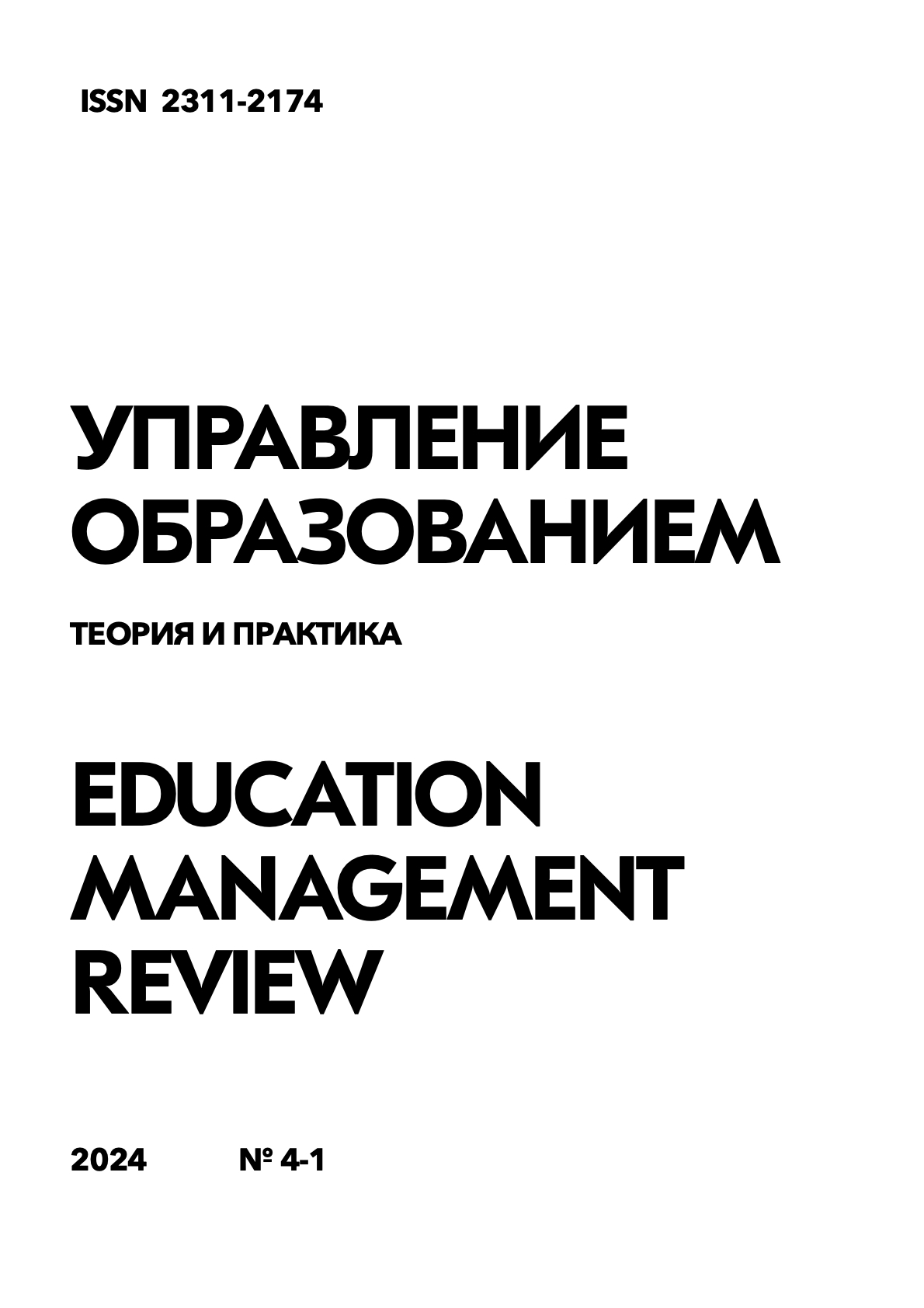Development of the pedagogical culture of parents at the regional university campus
Keywords:
pedagogical culture of parents, university campus, regional university, education management, psychological and pedagogical education, interaction of family and universityAbstract
The article is devoted to the study of the problem of the development of pedagogical culture of parents in the conditions of a regional university campus. The relevance of the study is due to the need to improve the pedagogical competence of parents for effective interaction with children and educational institutions. The purpose of the work is to identify the features and factors influencing the formation of the pedagogical culture of parents on a regional university campus, as well as to develop recommendations for improving the education management system in this direction. In the course of the research, a set of theoretical and empirical methods was used: analysis of scientific literature on the problem, questionnaires, interviews, pedagogical observation, study and generalization of pedagogical experience. The empirical base was made up of data obtained from a survey of parents of students of the A. A. Kadyrov Chechen State University living on the Universiade Village campus. Statistical processing of the results was carried out using the SPSS Statistics 23.0 program. It was found that the level of pedagogical culture of parents is characterized by a predominance of medium (47.2%) and low (31.4%) levels. A high level was found in only 21.4% of respondents. The main factors influencing the development of pedagogical culture are identified: the educational level of parents, their involvement in the life of the university, the availability of psychological and pedagogical information, the availability of special programs for parents on campus. A management model for the development of the pedagogical culture of parents has been developed, including targeted, meaningful, technological and effective blocks. Measures are proposed to improve the process under consideration: the creation of a parent university, conducting trainings and seminars, developing information booklets and online resources.
References
Арнаутова Е.П., Иванова В.М. Общение с родителями: Зачем? Как? М., 2005. 147с.
Бим-Бад Б.М. Педагогический энциклопедический словарь. М., 2002. С. 130-131.
Гребенников И.В. Основы семейной жизни: учеб. пос. для пед. ин-тов. М.: Просвещение, 1991. - 157 с.
Данные социологического исследования «Семья и образование», проведенного Институтом социально-политических исследований РАН в 2022 году. 2022. URL:
https://www.isras.ru/files/File/Doklad/Analit_doc_Sem_obrazovanie.pdf
Дементьева И.Ф. Первые годы брака. Проблемы становления молодой семьи. М.: Сфера, 2006. 128 с
Зинченко П.И. Университетский кампус как пространство социального развития студентов // Высшее образование в России. 2019. № 7. С.136-143.
Куликова Т.А., Пронина Н.А. Семейная педагогика и домашнее воспитание: уч. для студ. сред. проф. учеб. заведений. М.: Академия, 2000. 232 с.
Меренков А.В. Родители и педагоги: растим ребенка вместе. Екатеринбург: Изд-во Дома учителя, 2005. 143 с.
Минина А.В. Структура и содержание педагогической компетентности родителей в воспитании самостоятельности у детей дошкольного возраста // Образование. Наука. Инновации. 2013. № 4(30). С.152-156.
Овчарова Р.В. Психология родительства. М.: Академия, 2015. 368 с.
Чердынцева Е.В. Психолого-педагогические условия формирования педагогической культуры родителей // Сибирский педагогический журнал. 2011. № 9. С. 213-219.
Шнейдер Л.Б. Основы семейной психологии. М.: МОДЭК, 2010. 928 с.
Harvard Family Research Project // Harvard Graduate School of Education. 2002. URL: http://www.hfrp.org/
Downloads
Published
How to Cite
Issue
Section
License

This work is licensed under a Creative Commons Attribution-NonCommercial-NoDerivatives 4.0 International License.




